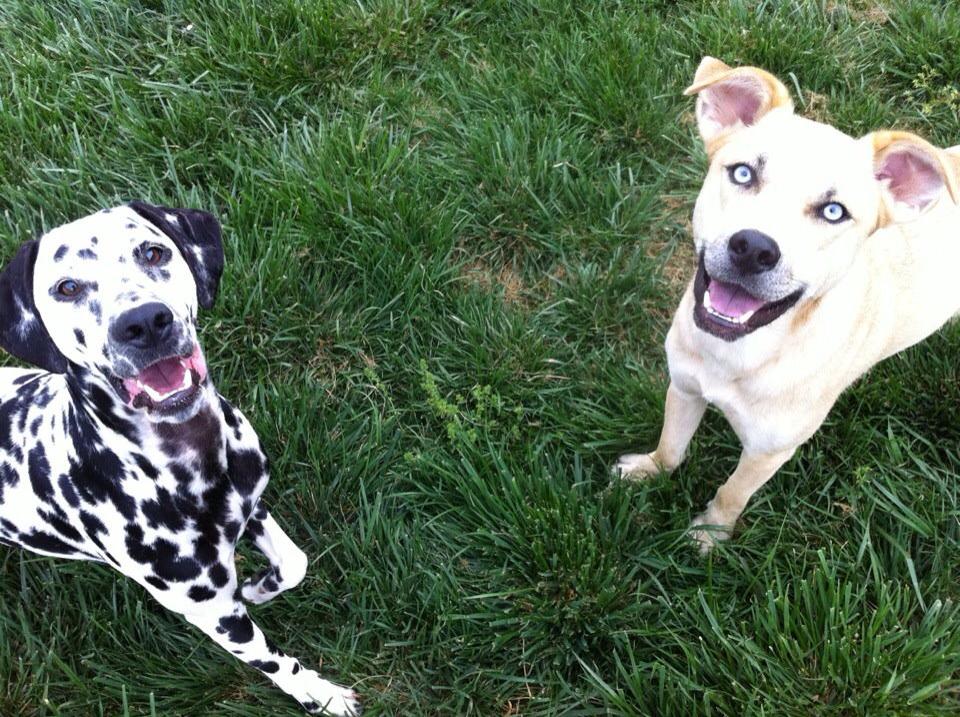To Neuter or Not to Neuter....That IS the question!
by Kathryn Primm DVM on 07/11/12
I recently got this email from a loving pet owner. She raises some concerns that I am sure others share. Kudos to her for asking someone she trusts who has expertise in this area (me) and not basing her decision on forums posted by strangers! I am including excerpts from her original email and my reply.
"...I have a 10-month-old, 4-lb yorkie. I was leaning toward not neutering him because I honestly didn't see the necessity, as he is in my presence 99.9% of the time.... I, therefore, started reading about the pros and cons of neutering...My husband also tells me that getting him neutered doesn't guarantee that he will stop "acting out." There is also the concern of anesthesia in such a small pet. Can you share any facts you may have regarding neutering versus not neutering? There are a lot of places on line that have "forums," but they are mainly people's opinions and I am looking for facts. My main reason for neutering would be if it curbed his behavior.
Excerpts from my reply:
Kudos to you for wanting expert advice and for realizing that forums are only opinion! I am going to tell you my opinion (educated, of course) . Firstly, I do not particularly enjoy or profit from sterilization procedures and if it were not for the medical and behavioral benefits to the pets, I would not recommend them at all. Neutering of companion pets makes them focus on being pets. They are protected from multiple hormone dependent disease processes. A neutered dog is more apt to focus on pleasing you than marking his territory or seeking a mate. You would likely see a decrease in mounting, marking and roaming behaviors. If you had ever seen a geriatric male dog with perineal hernias (weakened muscles around the anus from testosterone) , you would already be dialing to set up your appointment! Unfortunately, however, I do not know if your dog will be one that suffers from perineal hernia later in life. Anesthesia comes with innate risks, even for humans, but with today’s current medical advances and careful monitoring, we can minimize any risk. We do require pre-anesthetic testing so we can choose the right drug protocol for him that will be the safest for him. Blood testing early in life also allows me the opportunity to screen for congenital abnormalities (unfortunately common in Yorkies) and anesthesia around the time the adult teeth are coming in allows me to do proactive dentistry as well, saving later tooth damage and additional anesthesia. Your husband is correct that there is no guarantee that neutering will abolish unwanted behaviors, but it is our only chance. Any behavior that is strictly motivated by the presence of testosterone will be positively impacted. This is your choice and you will make the best one for you both. I want you to be able to make an informed decision that is not swayed by others. The facts are summarized below:
I hope that she was helped. She replied that she agrees with and appreciates my advice and will call for an appointment. I hope and believe that his behaviors will be positively impacted by neutering him as soon as possible. I am so glad that she let me "weigh in"!
- There is no guarantee that the unwanted behaviors will be abolished, but neutering is the best shot you’ve got.
- You should not let fear of anesthesia immobilize you because we use the latest in anesthetic drugs and extreme monitoring.
- There are documented health benefits to a neutered pet and related disease processes may require neutering late in life when you would not get any behavioral benefit.
3.







